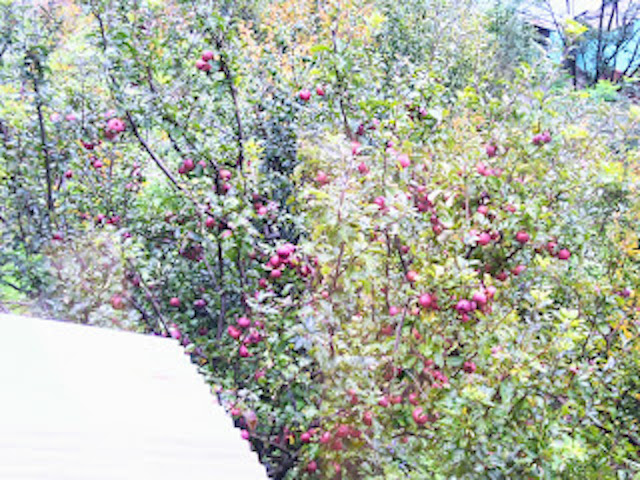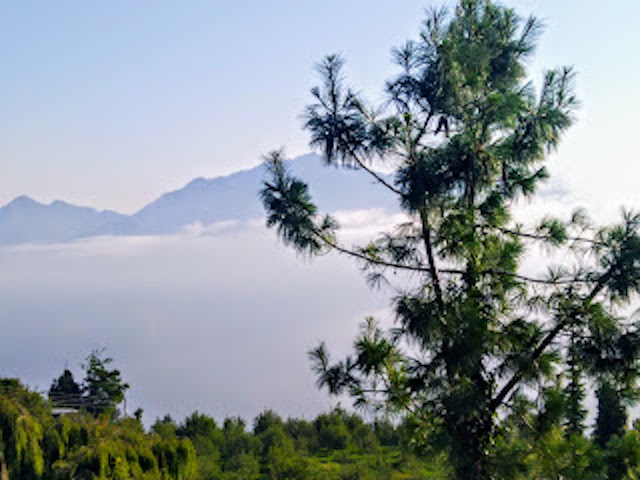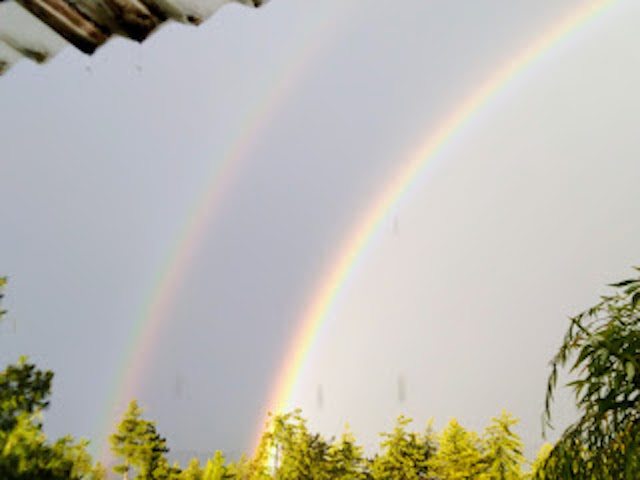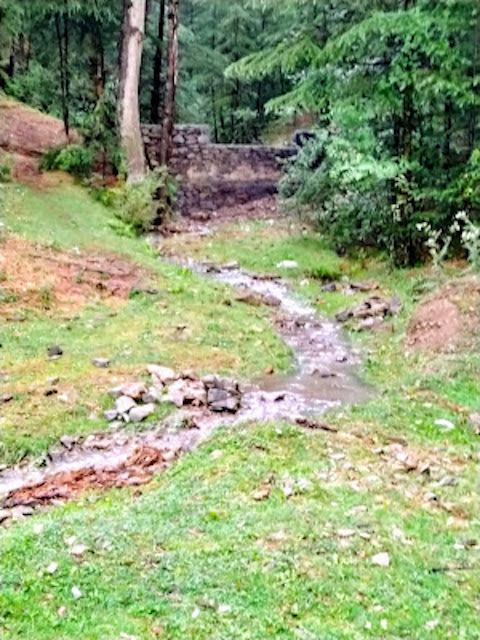Now that the manufactured frenzy of Independence Day is over ( as if India has never celebrated 15th August before), I am happy to report that it is now apple plucking time in Puranikoti. I have a few apple trees on my land and look after them assiduously: I keep pumping in money for their care, like a venture capitalist, and most years suffer the same fate as Anil Ambani. Growing my own apple costs me about five times what purchasing one would cost, partly because I have sticky, not green, fingers and partly because of the fact that, having been Secretary ( Horticulture) for three years I know nothing about growing apples.

But I love parting with my money for the sake of growing my own apples. And they are all 100% organic: the only chemical I use is when I apply the hand sanitiser on my hands after counting out a few more slices of my pension for the benefit of the labour or the carton supplier. There is something magical in witnessing the slow but sure processes of nature- from the leafing to the bud, the bloom and the flower, and finally the tiny fruit itself, becoming redder and larger every day. It is also humbling, for while we may claim we “grow” the apples, they actually grow themselves and we are mere spectators. I like the ringside view, especially the many birds- barbets, Himalayan magpies, sparrows, swallows and bulbuls- who throng the trees these days, munching on the apples and making almost as much noise as their counterparts at a kitty party. They will not, however, touch the dropped apples; they can afford to be choosy at this time of plenty!

This is monsoon times in Puranikoti and we residents have the place to ourselves, for the tourists have returned to their beehives in Delhi and Maler Kotla or wherever they emerge from every April. They will renew their assault next month but we have obtained a breather to build up our defenses again. I am of the firm view that the sooner the North Indian Tourist goes extinct as a species, the better it will be for mankind. It’s not just their loudness, littering and scrapping. They walk into your property with the aplomb of Moses walking into the Red Sea, pluck your apples and flowers, even indulge in an al-fresco picnic on your lawns! If you object they offer to buy the property off you, or threaten you with their geneology , which will usually contain an MP or MLA or a Deputy Supdt. of Police in the boondocks of Haryana. So now I have kept a dog ( he too is from Haryana, naturally) to even the scales: I wanted to name him Rolex, because he is supposed to be a “watch”dog, but was over-ruled by the family. So the pooch has been christened Brutus, and he regards all tourists as honourable men and is therefore of no use except to show that the Shuklas know their Shakespeare.
But I better not bad-mouth the tourists too much; after all they are the ones who put the daily bread ( not to mention the evening peg) on our tables. Puranikoti is home- stay country: 80% of the houses and establishments here are guest houses catering to the migratory hordes, and one would be wise not to anatagonise the good neighbours. An occasional woof-woof is okay but it should stop short of biting the hand that feeds one. Time to move on to other topics.

It’s been a very wet monsoon this year: in all of July and August so far we have had barely four sunny days. But I’m a happy man, and for a change I owe this unusual condition to the government, or, to be more precise, to Rajneesh, who was the Principal Secretary ( Forests) till last month. Those who suffer my blogs regularly will recollect that on 15th April I had posted a blog( Purani Koti Diary- Of Tourists and Water Woes) wherein I had argued for building check dams on the forest nullahs to contain the run-offs from the rains, store this water and revive the myriad streams criss-crossing the Puranikoti forests. I had specifically pointed to, and posted a photo of, a nullah near my house which at one time ran throughout the year but had now gone dry.
Within a week of the blog appearing Rajneesh had come to meet me along with the Conservator of Forests, Shimla, checked out this nullah, and started work on three check dams on it. They have now been constructed and are functioning beautifully. They trap all the rain water and the vanished little brook has reappeared as if by magic and gurgles happily the whole day long, even if it has not rained for a few days. This water will meet the irrigation needs of the downstream villages for the winter crop of peas long after the rains are gone. It will rejuvenate the forests by providing moisture in the sub-soil and will also be a boon for the wildlife, especially the pheasants and jungle fowl that nest in the bushes. Thank you, Rajneesh and Sharmaji.

And now I must repair to my study with my single malt and soda to peruse the latest book by my good friend and neighbour, Navtej Sarna, formerly of the IFS. It’s titled CRIMSON SPRING, a novel built around the Jalianwala Bagh massacre. Navtej is a master at synthesising history and fiction; his research is painstaking, and if there are any gaps in it I’m sure the single malt shall provide the missing links.
And so, with the tourists gone, the apples decking my trees like Christmas lights, the avian orchestra and cicadas on song, my neighbourhood brook flowing again, the amber fluid within reach and Navtej’s book casting its own spell, I feel like Omar Khayyam : Purani Koti, folks, is Paradise enow.
(Photos by the author)
| The author retired from the IAS in December 2010. A keen environmentalist and trekker he has published a book on high altitude trekking in the Himachal Himalayas: THE TRAILS LESS TRAVELLED.
His second book- SPECTRE OF CHOOR DHAR is a collection of short stories based in Himachal and was published in July 2019. His third book was released in August 2020: POLYTICKS, DEMOCKRAZY AND MUMBO JUMBO is a compilation of satirical and humorous articles on the state of our nation. His fourth book was published on 6th July 2021. Titled INDIA: THE WASTED YEARS , the book is a chronicle of missed opportunities in the last nine years. Shukla’s fifth book – THE DEPUTY COMMISSIONER’S DOG AND OTHER COLLEAGUES- was released on 12th September 2023. It portrays the lighter side of life in the IAS and in Himachal. He writes for various publications and websites on the environment, governance and social issues. He divides his time between Delhi and his cottage in a small village above Shimla. He blogs at http://avayshukla.blogspot.in/ |


